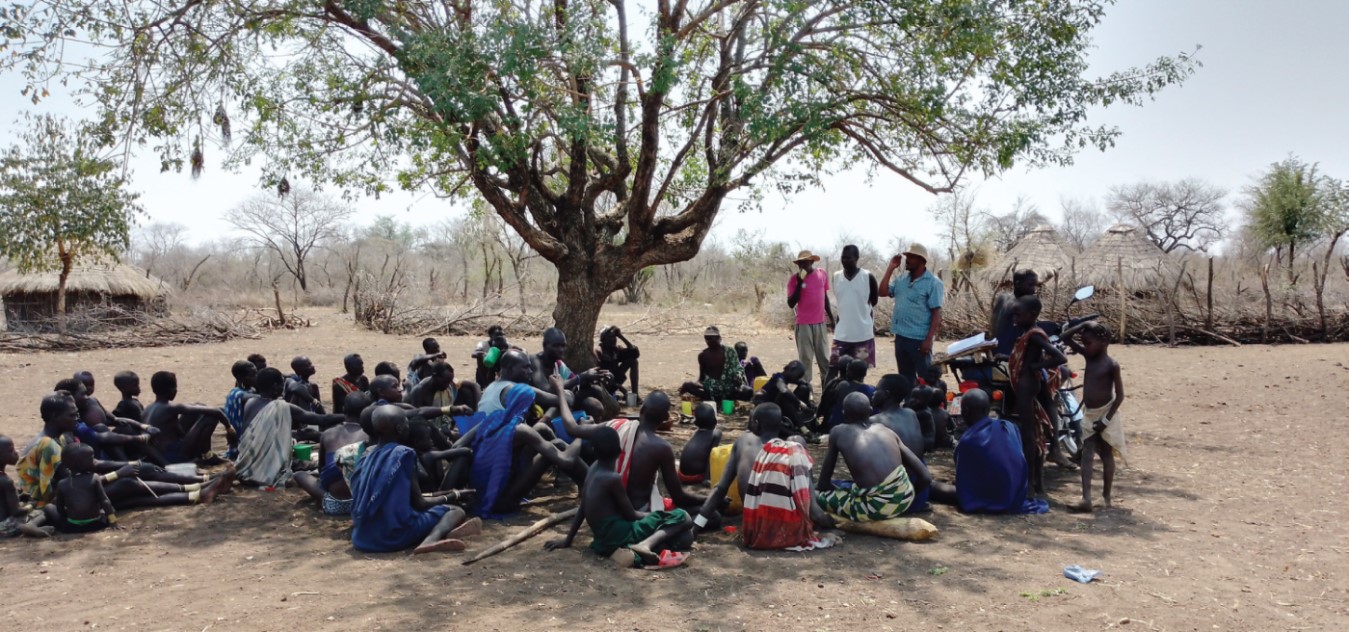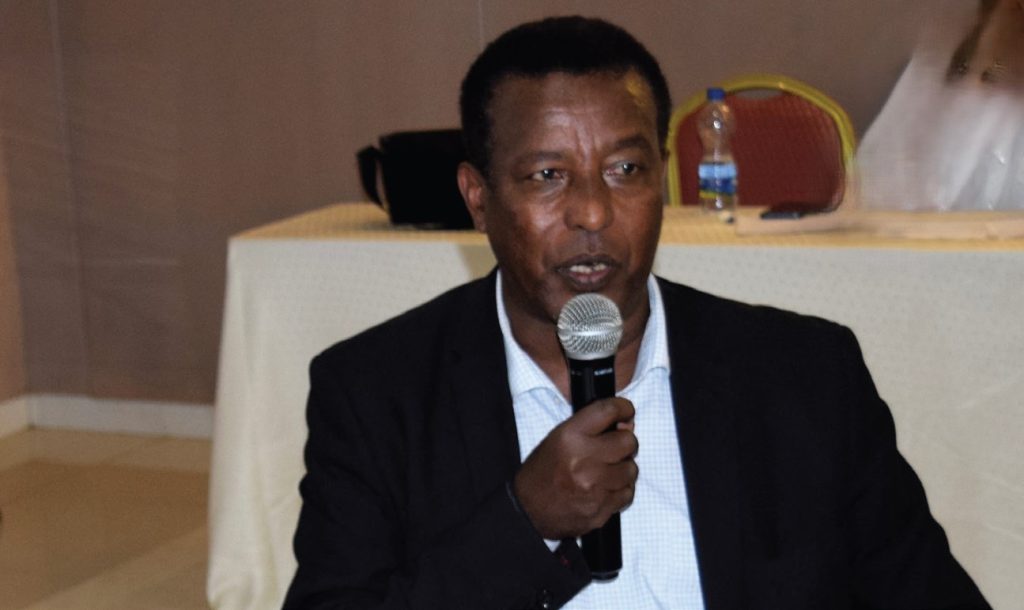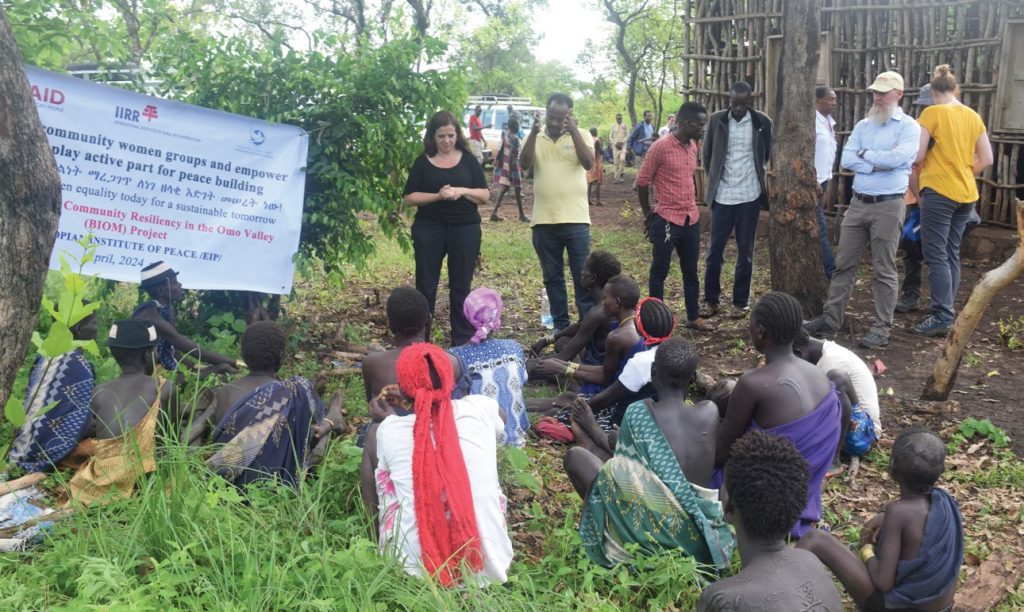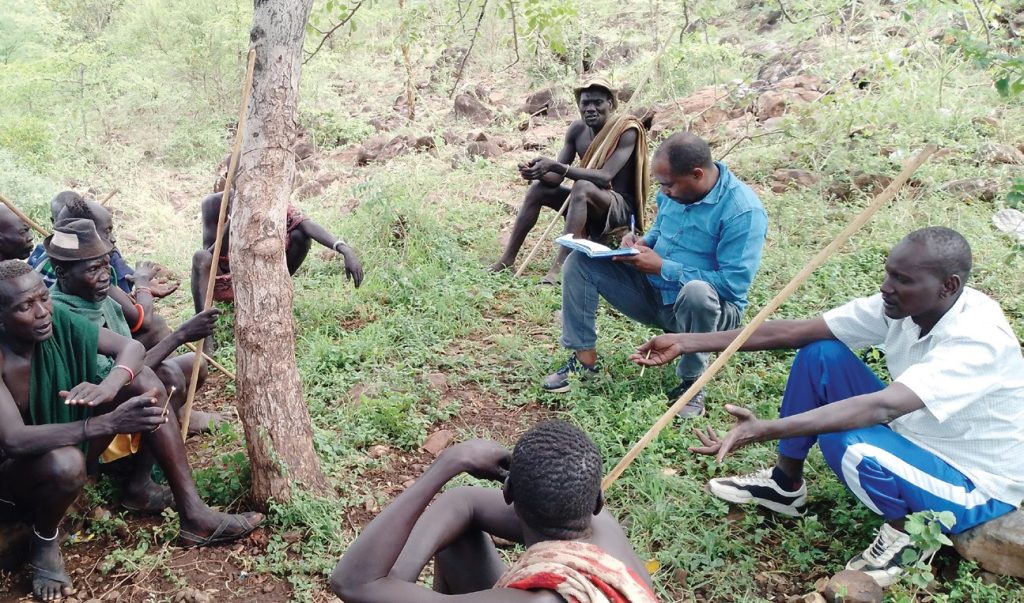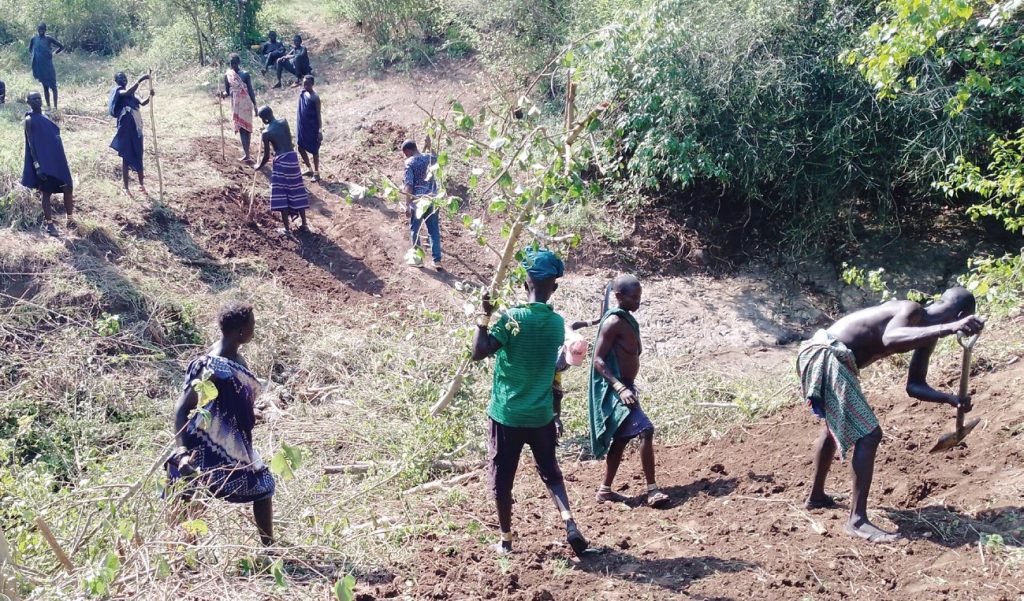Through the BIOM project focusing on peace as an agent of change, participants are encouraged to strengthen their determination for peace and build peace themselves committing to not creating conflicts or engaging in revenge acts. This commitment was proven when Simon was on a bus carrying a Mursi youth by Ari territory, due to a flat tire the bus had to stop. An Ari man who had lost his brother went to kill the Mursi boy for revenge. Simon intervened and convinced the man not to and then explained to the boy he was now safe and that he needed to work for peace himself to encourage his community to engage in actively building peace.
Simon’s dedication to promoting peace and avoiding conflict highlights one of the behavior changes sought by the BIOM project with local communities. This story underscores the project’s success in fostering a culture of peace and resilience through community engagement.
Forging Strong Partnerships
Under Zerihun’s leadership, IIRR Ethiopia has forged robust partnerships with various stakeholders, including governmental bodies, non-governmental organizations, and private sector actors. These collaborations are pivotal in ensuring the successful implementation and sustainability of projects like MaYEA and BIOM.
A Vision for the Future
This work is crucial for Ethiopia and Africa due to the significant socio-economic and environmental challenges the continent faces. Ethiopia, like many African countries, grapples with high unemployment rates, particularly among youth, and widespread poverty. Sustainable development projects, such as those led by Zerihun with IIRR, address these issues by creating employment opportunities, enhancing local economies, and promoting social stability. Furthermore, initiatives like the MaYEA program and the BIOM project contribute to environmental conservation, crucial for combating climate change and preserving biodiversity. These projects not only improve livelihoods but also foster a culture of resilience and self-reliance, essential for the long-term prosperity of communities across Ethiopia and Africa.
Zerihun’s vision for the future is deeply rooted in the principles of sustainable development and community resilience. His leadership at IIRR Ethiopia continues to inspire and drive positive change, demonstrating that with the right support and dedication, communities can achieve remarkable progress. His efforts in leading the MaYEA and BIOM projects, along with strategic planning and collaboration, have significantly contributed to empowering rural communities in Ethiopia. Zerihun’s commitment to promoting gender inclusivity, environmental conservation, and community resilience continues to make a profound impact, reflecting the values and principles of Future Generations University.
